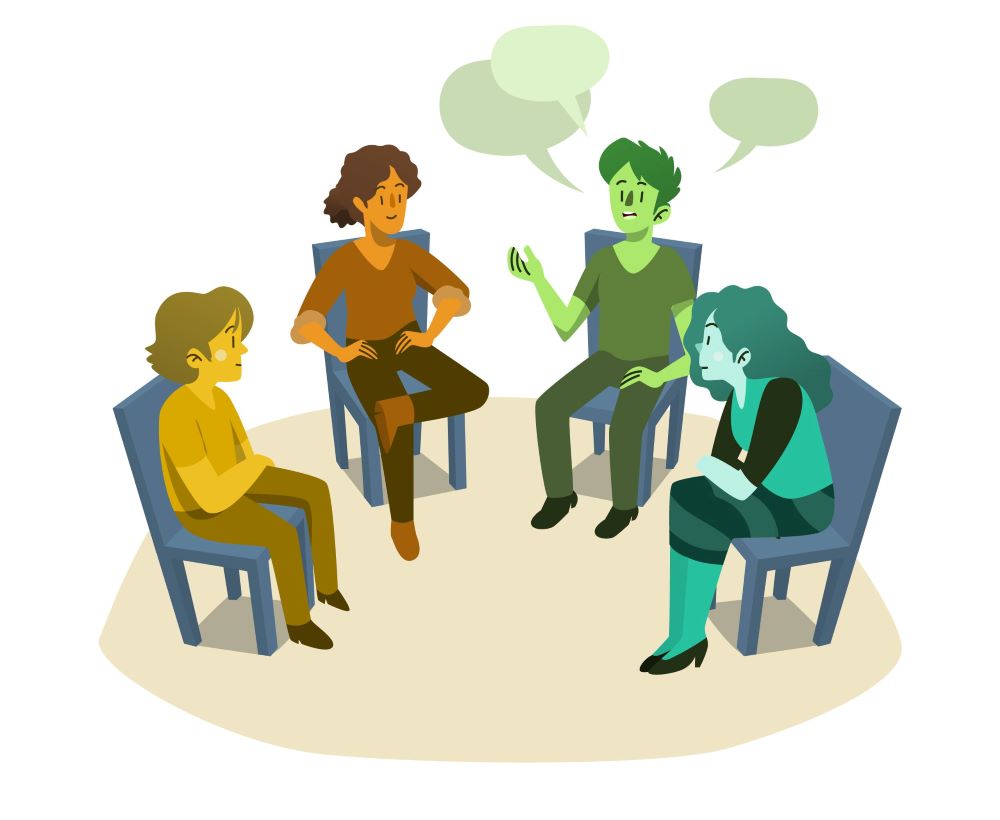The field of Addictions and Community Service Work is evolving rapidly, with new trends shaping the way professionals address addiction and provide support. In this blog post, we will explore the top five trends in the Addictions and Community Service Worker Diploma Program in Toronto. We will delve into each trend and provide examples of how students can master these trends to make a meaningful impact in their work.
Holistic Approaches to Treatment

Integrating physical, mental, emotional, and social aspects of addiction care through holistic approaches can recognize that addiction affects individuals on multiple levels. As a student, you should strive to understand that all these aspects are interconnected in addiction recovery.
To master this trend you can:
- Attend workshops and training sessions on various therapeutic modalities that focus on the holistic approach to addiction treatment.
- Engage in interdisciplinary collaborations with professionals from different fields, such as mental health, nutrition, and physical therapy.
- Create comprehensive treatment plans that address the physical, mental, emotional, and social needs of clients. For example, incorporating exercise routines, mindfulness practices, and social support networks into treatment plans.
Trauma-Informed Care
Creating safe environments and understanding the impact of trauma on addiction can significantly impact addiction and recovery. Students must create safe spaces where individuals feel comfortable sharing their experiences. By mastering trauma-informed care, they can provide compassionate support and understand how trauma influences addictive behaviors.
You can try the following ways to master this trend:
- Take courses on trauma-informed care and its application in addiction treatment.
- Develop active listening skills to create a safe space for clients to share their experiences.
- Incorporate trauma-informed techniques, such as grounding exercises and mindfulness, into counseling sessions.
- Collaborate with trauma specialists and seek supervision or consultation to enhance your understanding of trauma’s impact on addiction.
Cultural Competence and Diversity

Toronto is a multicultural city, and cultural competence is vital in providing effective addiction treatment. You must learn and understand the unique needs, values, and beliefs of diverse communities. By practicing cultural humility and adapting your approach accordingly, you can build trust and foster a more inclusive environment.
You can master this trend through these steps:
- Engage in cultural competency training and workshops to increase your understanding of different cultural perspectives.
- Conduct research and explore resources specific to various cultural groups to tailor your approach accordingly.
- Build relationships with community leaders and organizations representing diverse communities to gain insights and collaborate on culturally appropriate interventions.
- Implement interpreter services or utilize bilingual staff to ensure effective communication and understanding with clients from different cultural backgrounds.
Integration of Technology
Technology plays a significant role in modern addiction treatment. Students should master the use of digital tools for assessment, intervention, and improving accessibility.
To master this trend:
- Familiarize yourself with electronic health records (EHR) systems and telehealth platforms for secure and efficient record-keeping and remote counseling sessions.
- Explore addiction-specific mobile apps and online resources that provide self-help tools and educational materials for clients.
- Stay updated on advancements in addiction-related technology and attend webinars or conferences on digital tools in the field.
- Utilize social media platforms and online forums to raise awareness and engage with individuals seeking addiction support.
Prevention and Harm Reduction

You can practice proactive approaches that aim to prevent addiction before it occurs. This includes raising awareness, promoting healthy coping skills, and educating communities on the risks associated with substance abuse.
You can become skilled in this as you:
- Engage in community outreach programs to educate individuals on the risks of substance abuse and promote healthy coping skills.
- Volunteer at local harm reduction initiatives, such as needle exchange programs, to gain hands-on experience and understanding of harm reduction strategies.
- Stay updated on current research and evidence-based practices related to prevention and harm reduction.
- Advocate for policy changes and collaborate with community stakeholders to implement preventive measures and expand access to harm reduction services.
Conclusion
Mastering the top trends in the Addictions and Community Service Worker Diploma Program in Toronto requires continuous learning, practical application, and collaboration. By actively engaging in professional development, embracing new technologies, fostering cultural competence, and incorporating holistic and trauma-informed approaches, students can enhance their skills and effectiveness in addiction treatment and community support.
Stay at the forefront of the field, continuously adapt, and make a lasting difference in the lives of those you serve.
Equip yourself with these skills with ABM College’s Addictions and Community Service Worker Diploma Program in Toronto.
Contact us now.
Read more about trending topics on our blog.
About The Author

Private Career College
ABM College is a leader in career-focused education, committed to empowering students with industry-relevant skills. With expert instructors and practical training, ABM College delivers high-quality programs in health, business, technology, and more, ensuring graduates are prepared to meet workforce demands. Known for its supportive learning environment and a focus on real-world application, ABM College is a trusted educational partner helping students achieve professional success across Canada.
